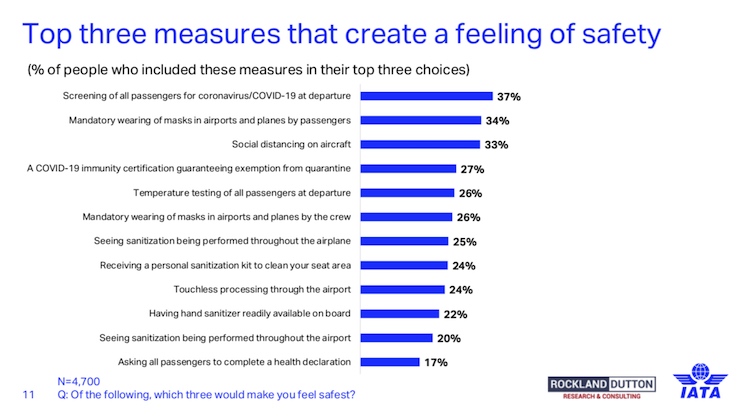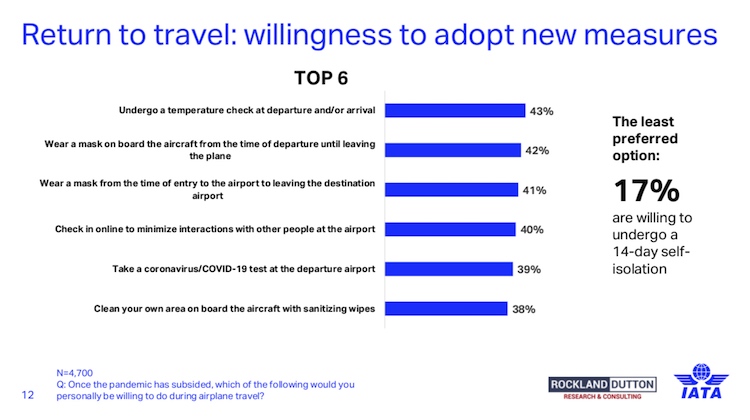News
IATA boss says his first COVID-19 flight “different but not so different”
July 10th 2020
International Air Transport Association (IATA) director general and CEO, Alexandre de Juniac, has described a recent trip to Paris – his first flight since the coronavirus outbreak – as "different but not so different". Read More »
The head of the Geneva-headquartered airline lobby group said this week the additional safety measures during the journey included wearing of masks, maintaining social distancing and avoiding contact through contactless technologies.
The level of cooperation among travellers was very high, he said, and added he was confident people would soon become used to these hopefully temporary measures.
"Everything is pretty acceptable and bearable. The changes are not so huge and they are broadly accepted, at least by the passengers with whom I was travelling in this aircraft," de Juniac said in a conference call with reporters this week.
"It does make travel different but not so different. If that is the price for the freedom to travel, you can count me in. It is not a high price," he said.
Although the borders of Europe were largely open, other parts of the world remained closed as governments maintain bans on foreign arrivals in efforts to contain the spread of the coronavirus within their borders.
IATA has backed the recently published International Civil Aviation Organization (ICAO) Take-off guidelines, which have outlined risk-based measures rather than quarantine. They include the use of pre-departure health screening, the wearing of masks, sanitization and health declarations.
Traveller sentiment around the question of quarantine had not changed much from April to June, an IATA survey published this week revealed.
Of the 4,700 recent travellers from 11 countries polled, 85% said in June they were very concerned or somewhat concerned about being quarantined while travelling, compared with 86% in the April survey.
“Quarantine is a demand killer," de Juniac said.
"Keeping borders closed prolongs the pain by causing economic hardship well beyond airlines. If governments want to re-start their tourism sectors, alternative risk-based measures are needed. Many are built into the ICAO Take-off guidelines."
The June survey was the third IATA had commissioned in 2020, with the previous surveys conducted in April and February.
Broadly, 42% of respondents in June said they were somewhat concerned about contracting COVID-19, with 41% very concerned, for an aggregate total of 83%.
"Not surprisingly it's high across the board. It has been high since February," Dr David Rockland, a consultant to IATA, told reporters.
He said the lowest figure was among Australian respondents, where 76% either were somewhat concerned or very concerned. By contrast, India had the highest percentage at 97%.
About 58% had avoided air travel during the pandemic, with 33% of respondents saying they would continue to avoid air travel in the period ahead.
The top three measures that created a feeling of safety were the screening of passengers for COVID-19 at departure, mandatory wearing of masks at airports and on the aircraft and social distancing on aircraft.
 |
 |